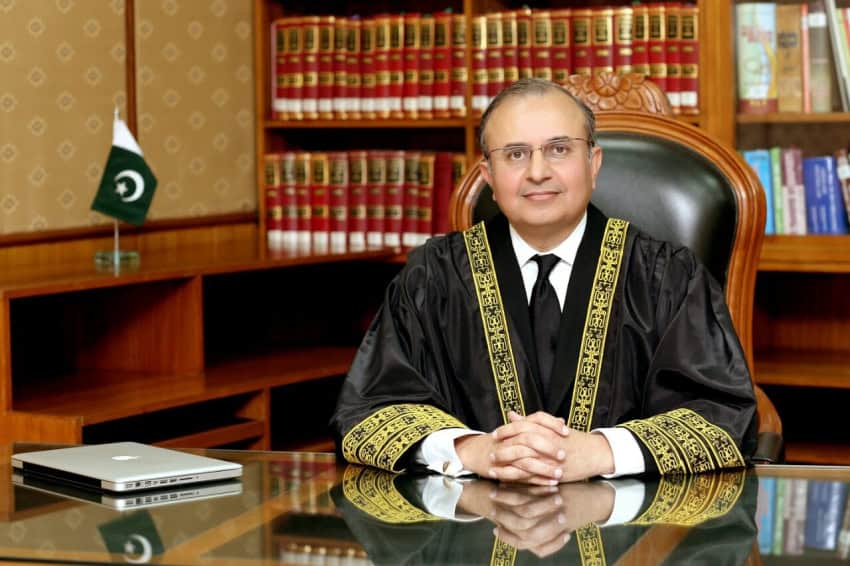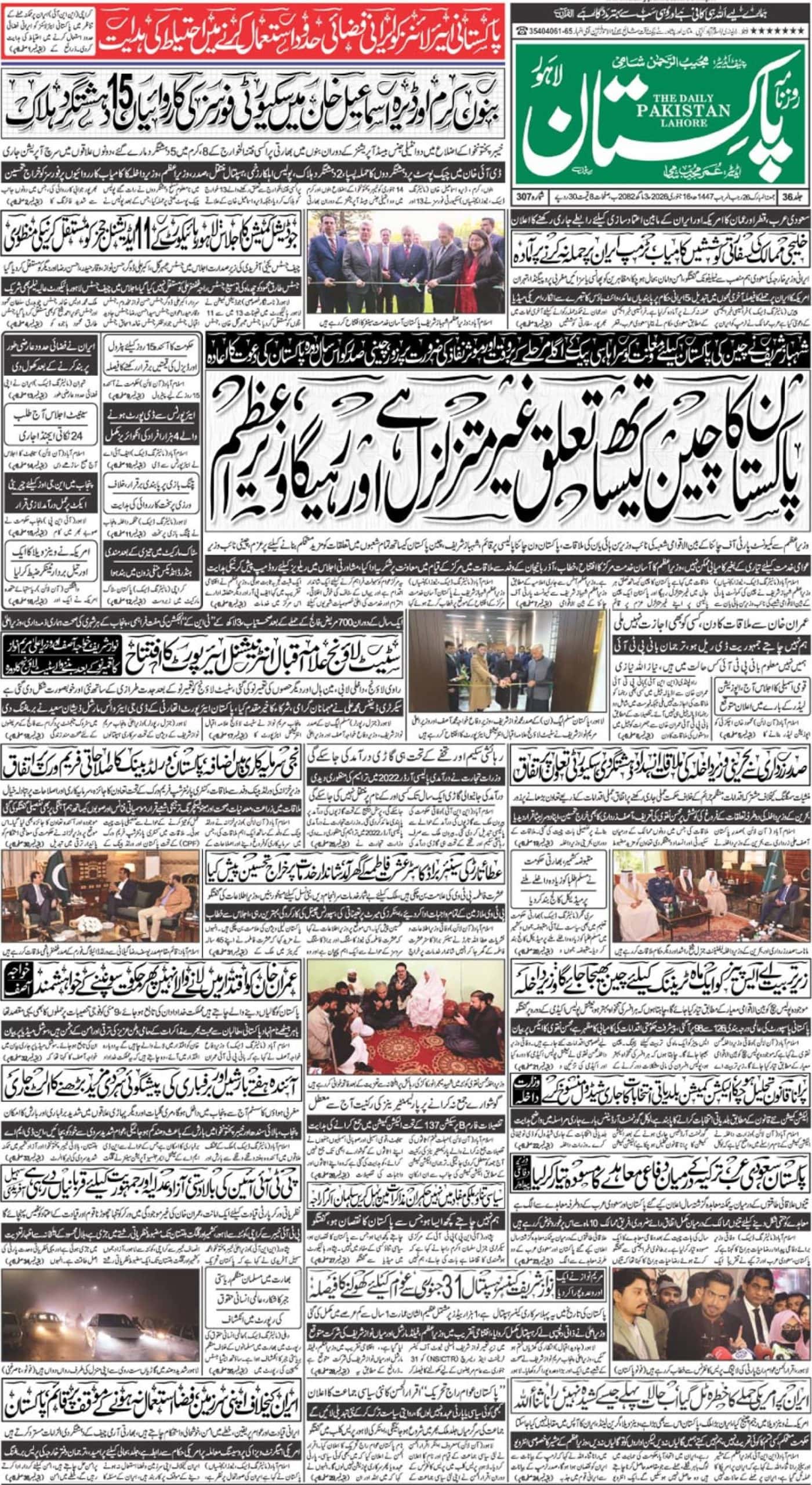ISLAMABAD – Supreme Court’s Justice Mansoor Ali Shah observed that members of the armed forces and judges can be held accountable under the accountability laws.
Justice Shah made the observation in his 27-page dissenting note on the NAB amendments verdict, issued by a bench led by former chief justice Umar Ata Bandail.
In a majority 2-1 verdict, the top court in its September 15 ruling nullified some amendments made to the National Accountability Ordinance (NAO), 1999 during the PDM-led government.
Justice Shah said during the hearings of the case, which was filed former prime minister Imran Khan after the amendments were made, a question was also raise as to whether judges and members of the armed forces are exempted from the NAB laws.
“We must, therefore, strongly shun the above generally professed opinion and be clear that members of Armed Forces and the judges of the constitutional courts are fully liable under the NAB Ordinance, like any other public servant of Pakistan,” he observed.
Saying the courts should decide the cases as per the law and Constitution of Pakistan, he said no state organ enjoys superiority over the other under the principle of “trichotomy of power.
“Courts must rise above the ‘hooting throng’ and keep their eyes set on the future of democracy, undeterred by the changing politics of today. Courts unlike political parties don’t have to win popular support. Courts are to decide according to the Constitution and the law even if the public sentiment is against them,” read the note.
He said that all the organs of the state have their separately delineated functions, adding that all the pillars of state are completely independent in their own sphere of work.
“The legislature is assigned the function to legislate laws, the executive to execute laws and the judiciary to interpret laws. None of these three organs are dependent upon the other in the performance of its functions nor can one claim superiority over the others,” Justice Shah wrote.
“Any one of these three organs cannot usurp or interfere in the exercise of each other’s functions, nor can one encroach upon the field of the others”.
While talking about the petition filed by Imran Khan against the amendments, he said the lawyer for the petitions failed to explain how the amendments affected the fundamental rights.
“As discussed above, the learned counsel for the petitioner has utterly failed to clearly establish beyond any reasonable doubt that the challenged amendments in the NAB Ordinance are constitutionally invalid on the touchstone of ‘taking away’ or ‘abridging’ any of the fundamental rights, in terms of Article 8(2) of the Constitution. I find the petition meritless and therefore dismiss it,” read the note.
He said the parliament through the challenged amendment, changed the forums for investigation and trial of the offences of corruption involving the amount or property less than Rs500 million.
“This matter undoubtedly falls within the exclusive policy domain of the legislature, not justiciable by the courts. In my opinion, this and other challenged amendments, which relate to certain procedural matters, in no way take away or abridge any of the fundamental rights guaranteed by the Constitution to the people of Pakistan.”
Shehbaz, Zardari and Kakar may face cases as SC annuls amendments in NAB laws














